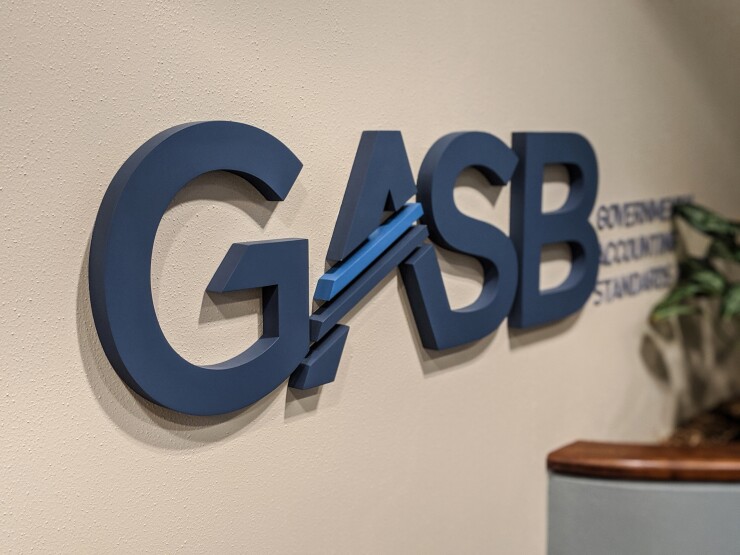
The Governmental Accounting Standards Board has proposed a one-year delay of the effective dates for almost all its statements and implementation guides.
The proposed delay for state and local governments to begin using the new standards is open for comments until April 30. The exposure draft is called Postponement of the Effective Dates of Certain Authoritative Guidance.
GASB said the delay comes in response to a number of requests because of the coronavirus pandemic, with some finance officers asking for up to an extra two years.
The delay reduces the financial reporting burden for government auditors at a time they are facing additional challenges related to the COVID-19 pandemic.
On the other hand, GASB said the objective of each new accounting standard is to provide transparency and accountability to citizens, legislative and oversight bodies, and investors and creditors.
“The board’s determination of the appropriate length of the postponement was complicated by the fluidity of developments during the pandemic and the lack of certainty regarding the path it would take,” GASB said. “Estimates of how long stay-at-home orders would last changed multiple times during the development of this statement. The deliberations were further complicated by variations from state to state in both the severity of the virus and the measures enacted to combat it.”
GASB approved the one-year delay at its March board meeting.
At that same meeting GASB also finalized Statement No. 94, Public-Private and Public-Public Partnerships and Availability Payment Arrangements.
The final P3 statement, which is expected to be published next week, will apply to reporting periods beginning after June 15, 2022, which is one year later than originally proposed.
GASB’s previous guidance on P3s was in Statement 60 published in 2010. At that time only a few state and local governments had undertaken P3s. Those early P3s involved a private partner that would operate and maintain the infrastructure, collect revenues such as tolls and handle any debt payments.
More recent P3s can involve the government entity collecting the revenue or require that the private operator turn over the revenue to the government before a payment is made back to the private partner. Those variations wouldn’t meet GASB’s previous definition of a service concession arrangement.
The list of the delayed standards are as follows:
-- Statement No. 83, Certain Asset Retirement Obligations
-- Statement No. 84, Fiduciary Activities
-- Statement No. 87, Leases
-- Statement No. 88, Certain Disclosures Related to Debt, including Direct Borrowings and Direct Placements
-- Statement No. 89, Accounting for Interest Cost Incurred before the End of a Construction Period
-- Statement No. 90, Majority Equity Interests
-- Statement No. 91, Conduit Debt Obligations
-- Statement No. 92, Omnibus 2020, paragraphs 6–10 and 12
-- Statement No. 93, Replacement of Interbank Offered Rates, paragraphs 13 and 14
-- Implementation Guide No. 2017-3, Accounting and Financial Reporting for Postemployment Benefits Other Than Pensions (and Certain Issues Related to OPEB Plan Reporting), Questions 4.85, 4.103, 4.108, 4.109, 4.225, 4.239, 4.244, 4.245, 4.484, 4.491, and 5.1–5.4
-- Implementation Guide No. 2018-1, Implementation Guidance Update—2018
-- Implementation Guide No. 2019-1, Implementation Guidance Update—2019
-- Implementation Guide No. 2019-2, Fiduciary Activities
-- Implementation Guide No. 2019-3, Leases.





